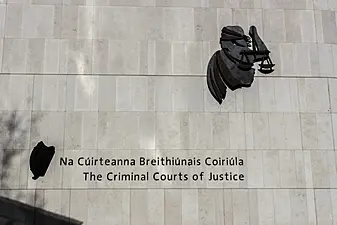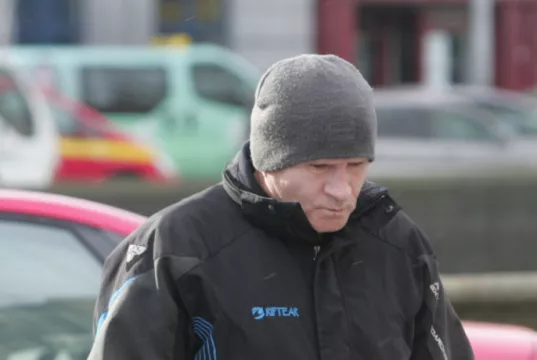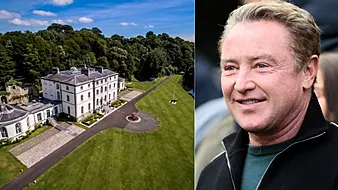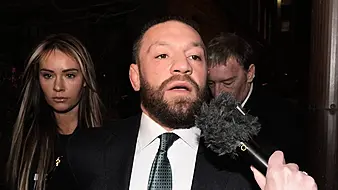Stephen 'Rossi' Walsh has appealed his conviction for the indecent assault of a child and cited adverse media coverage as a reason he could not get a fair trial.
The 74-year-old with a former address at Belgrave Road, Rathgar, Dublin 6, was convicted on October 21st, 2010, by a jury at Dublin Circuit Criminal Court of two counts of indecent assault before Judge Pat McCartan and sentenced to three years' imprisonment.
The prosecution case was that on two occasions between May 1st, 1988 and September 30th, 1998 a seven-year-old girl was indecently assaulted by Walsh.
Walsh had a 10-year sentence imposed on him by Mr Justice Paul Carney in February 2010 for raping a nine-year-old girl in the early 1990s. In November 2010, Judge McCartan made the three-year sentence consecutive to this, while in December 2011 Walsh received another consecutive 12-year sentence for sexual assault and defilement of a child on dates in 2008 and 2009.
In 1993, he received a 15-year sentence at the Special Criminal Court for arson and has also been convicted of armed robbery, road traffic offences, larceny and malicious damage.
Grounds for appeal
At today's hearing at the Court of Appeal, counsel for the appellant Paul Carroll SC said that Walsh was appealing the conviction for the indecent assault on two grounds.
Counsel said that Walsh featured in articles in the Sunday World and News of the World newspapers on the day before his trial began on October 18, 2010 and an article in the Sunday World was headlined: 'Rossi raped girl (9) on beach, now she's got justice'. Walsh himself complained of the matter to the trial judge but did not request an adjournment in the case.
Walsh, who represented himself at the trial, claimed that the adverse media coverage about his previous convictions could affect his trial by jury.
At the Court of Appeal today, it was submitted by Walsh's legal team that the trial judge erred in not adjourning the trial to such a time to allow for a "fade factor" to elapse in terms of any juror's memory of the articles.
Walsh also appealed his conviction on the grounds of judicial bias, where he claimed that Judge McCartan was "familiar" with Walsh outside of being a judge through the Prisoners' Rights Organisation.
Coverage
Mr Carroll today told the three-judge court that another article [in the News of the World newspaper] about another male accused of being a child-trafficker referred to Walsh as a "convicted perv" and a "leading general in Martin The General Cahill's mob" the day before his trial.
Mr Justice Patrick McCarthy said that the issue before the Court of Appeal was whether or not the adverse coverage of Walsh the day before his trial could mean his right to a fair trial was impaired.
Mr Carroll said that it would not be unreasonable if the trial judge had ordered the trial to halt and to get a copy of the Sunday World from the day before and see what was in it.
Walsh was in prison at the time of the article being published and did not have access to newspapers to bring before the court.
Mr Carroll submitted that the trial continued after Judge McCartan found that the complaint regarding the newspaper article was "hearsay" and that there was no proper material before the court.
Mr Carroll said that Judge McCartan did not apply "fair procedure" in Walsh's trial and that the trial should have been adjourned.
Claim of bias
Regarding the claim of bias, Mr Justice McCarthy noted that the trial judge said it was ultimately up to the jury to decide the case and that he had never acted for or against Walsh. Mr Carroll said that if a jury was to be the ultimate decision maker, as Judge McCartan said, then a judge would never have to recuse themselves, even if they were familiar with the defendant.

Dean Kelly SC, for the State, said it could not be excluded that the trial jury was not in mind of the articles published about Walsh.
Mr Kelly said that a jury warning was given by the trial judge to only base their decision on what they heard from the witness box but that it was Walsh himself, in his complaint, who brought up his own "bad past".
Counsel said that the trial judge was "impeccably" fair to Walsh, who was defending himself, and that Walsh was "not disadvantaged in any way".
Presiding judge Mr Justice John Edwards said that the court would reserve judgment in the appeal, but noted that a judgment would "not be in the next short weeks".







